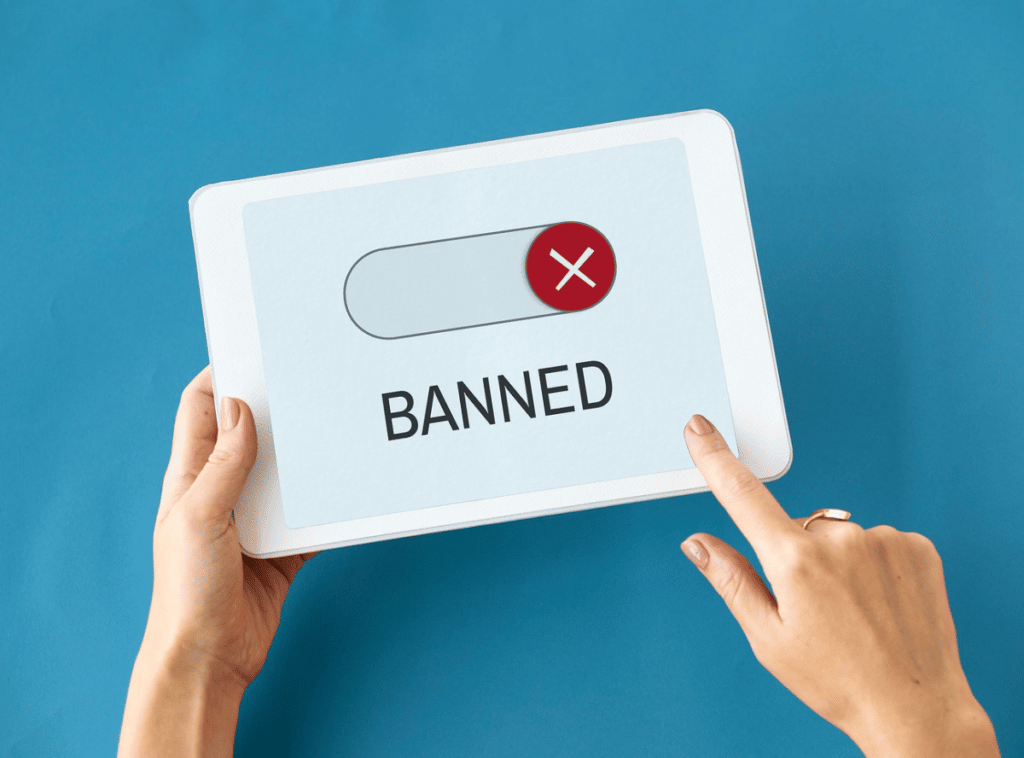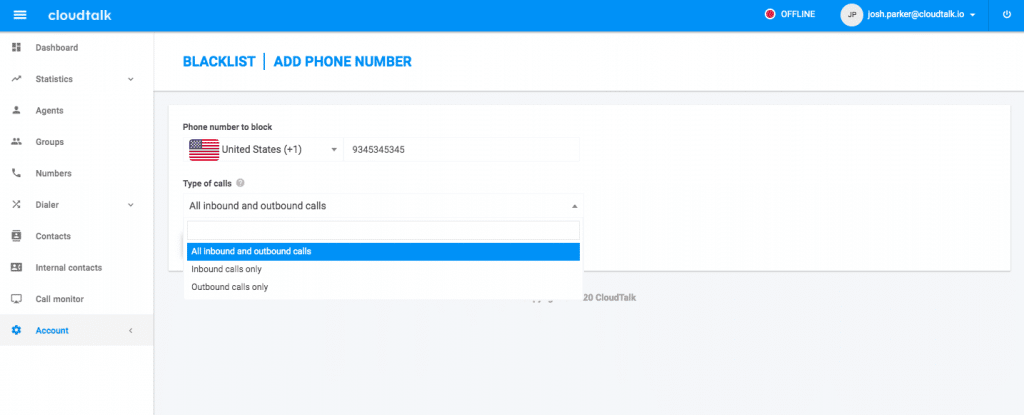Why should you create a call center blacklist (and how to do that)?

Spam calls are the plague of all businesses, especially call centers. Why should you think about blacklisting those, and how can you do that easily?
As a call center company, you receive and make dozens of calls every day. Your phone line is pretty busy. After all, you have to make sure that your phone number is visible and easily accessible. And if the calls you receive were only from current or prospective customers, it would be perfect. Sadly, you and your team have also to deal with several nuisance calls per day.
Learn more about the 8 best cloud contact center tools

Why should you blacklist phone numbers?
How many times you or your agent answered a phone only to hear one of those messages:
- “We’d like to invite you to a presentation on our new product.”
- “We have chosen your number to win one of our incredible prizes.”
- “Do you need X? We have a fantastic offer, just for you.”
- “Hello, I’m calling from tech support. We have noticed there’s a serious problem with your computer. If you won’t do X, there’s a serious risk of you losing all your data…”
Even if you can spot the scam from a mile, you still waste precious seconds. Meanwhile, calls from real customers have to wait in a queue.
Phone spammers and scammers are a real nuisance nowadays – both for individual people and for businesses. In 2019, phone users worldwide received 26 billion spam calls – and the numbers only grew ever since the “invention” of robocalls.
But while regular phone users can simply ignore unknown calling numbers (I don’t answer a call before checking it in Google first!), for a business that’s out of the question.
Every missed or ignored call can be a lost sales opportunity, so you have to answer all of them. But if you answer fake calls, you are wasting time and money that you could use on real callers. Is there any way in which you can stop bots and pushy salespeople from clogging your phone line? Yes, by creating a call center blacklist.
But first, let’s first have a look at types of nuisance calls businesses to have to deal with.
What are spam and scam calls in the first place?
A “spam call” is a universal term for all calls that aim to sell you something without your consent. Those might be coming either from legitimate companies (like mobile phone operators) or from companies you have never heard about earlier. If it’s a human telemarketer that calls you, you can at least ask from where they have your phone number and tell the caller to remove your phone number from their list. But what if you get a “robocall”?
Robocalls are pre-recorded messages that automatically go through lists of phone numbers and call a number using an autodialer. Since they are effortless to make and can call millions of numbers at the same time, robocall spam phones are now running rampant. Just in the US, there have been 58 billion robocalls in 2019.
Another problem with robocalls is that they very often use “phone spoofing”. Ever tried to call back an unknown number only to hear a busy signal? That’s exactly phone spoofing. Scammers are masking the real phone number with a spoofed phone number, so you can’t reach the caller.
Local numbers are especially often “spoofed”. Why? Spammers assume that you will be much more likely to answer a call from a number looking like a local city number rather than if they called you from a different country.
While those sales calls can be frustrating, the real threat comes from scam callers. Those can come in various forms, but their goal is the same – to get money, your company’s personal information or access to your computer system. Here are the most popular scams currently plaguing businesses:
- Scam orders – someone calls you to confirm an order of office supplies (that you never made) or offer a free catalog/sample products. If you or your agent agree and confirm the address, a surprise awaits you the next day. You will find a box with your “order” (often of low quality), together with an enormous bill. The scammers will also call you with demands to pay “for the order”, threatening with a call to the solicitor.
- Listings, domains, and advertising scams – when a caller claims to be from a well-known company and informs you that your listing/advertisement/domain is about to expire or is breaking the law, that’s an example of a listing scam. Another version of this scam technique is to offer “free” advertising or listing on a nonexisting website.
- Imposter scams – callers are pretending to be from governmental agencies, widely recognized companies or other trusted organizations to scare the companies they call into paying for “overdue taxes”, “expiring registrations” or some form of law-breaking. Callers very often also pretend to be from a tech support company and offer a system upgrade, free maintenance or inform about a “potential threat to your data”.
- Business coaching scams – scammers offer nonexistent business coaching courses or offer to promote a company ”for a small fee”. Besides promising fantastic results coming from their coaching, they also have several made-up “testimonies” to show in case a company needs more convincing.
Failing for any of the scam callers tricks can cause severe harm to your business. That’s why it’s crucial that you train all of your company staff to recognize and adequately react to fraud calls. But even if neither you nor your team members respond to such calls, those nuisance calls still can cause a lot of problems for your business.
The advantages of blacklisting phone numbers in your call center
- Your agents will have more time for the customers – If your agents have to spend some time answering calls from pushy salespeople, scammers, or robots – they have less time and energy to answer calls from prospects and customers.
- Your customers will spend less time in the queue – While your agents are busy dealing with nuisance calls, customers have to keep waiting in a queue until an agent becomes available. That increases the time you customers have to wait in line, and some of them might abandon the call.
- Spam calls are skewing your performance data – Not only spam calls are clogging your lines and wasting your time, but they are also skewing your metrics. Because of that, you might be wasting your budget on channels and activities that don’t give you good results.
- Spam calls cost you money – Each missed or abandoned call from a real customer might be a lost sales opportunity. What is more, you are still charged for answering spam calls. Nuisance calls also decrease the productivity of your agents and corrupt your analytics data. All of those mean financial losses for the company.
Call center blacklist – solution for blocking nuisance calls
Looking for a way to deal with the spammers once and for all? Virtual phone systems such as CloudTalk have a feature that will come in handy – call center blacklisting. Blacklisting feature allows you to compile a list of phone numbers that you want to be disconnected immediately the moment they attempt to call your business. Those numbers might be bots, vendors, spam callers, aggressive callers, and so on. You will also not be charged for the call attempt.
Such a blacklist can be created in just a few clicks and you later modify it as you wish. Here’s an example of how can you create and configure a call center blacklist in CloudTalk.

No more spam calls
The fight with the spam callers and spammers is far from over. Since they keep finding new ways to annoy or scam businesses out of their money, you have to be continuously on your guard. But now you have call center systems to make dealing with those pesky callers a bit easier.
In just a few minutes, you can create your own call center blacklist and prevent numbers on it from calling you ever again. That way, you will save money you would otherwise lose on dealing with nuisance calls. Your agents will also be able to sigh with relief that they won’t have to deal with spam calls as often.
























